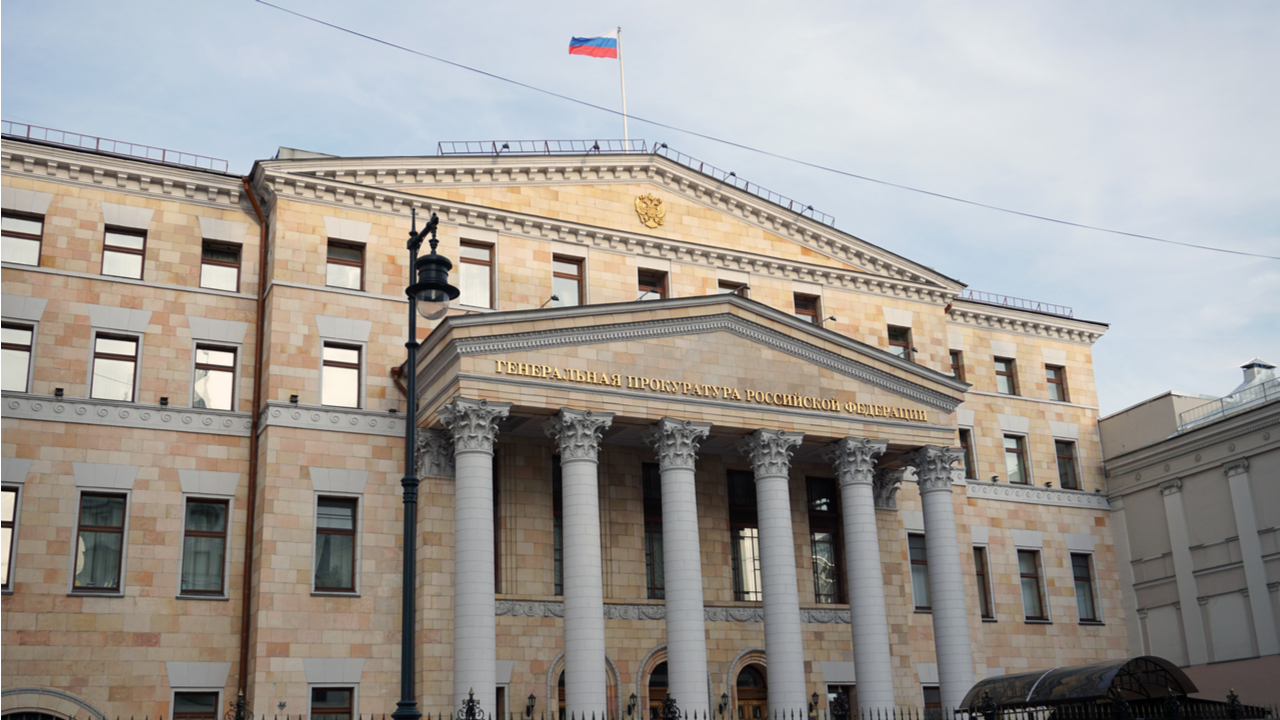Prosecutor Generals Office Wants to See Cryptocurrency in Russian Law – Regulation Bitcoin News


The Prosecutor General’s Office of the Russian Federation has insisted that the term “cryptocurrency” should be added to the country’s legislation. The move would allow authorities in Moscow to confiscate digital assets that have been involved in criminal activities.
Russian Prosecutor General’s Office Prepares Amendments Allowing Seizure of Cryptocurrency
With cryptocurrencies being only partially regulated through the law “On Digital Financial Assets,” work is underway in Russia to adopt legislation introducing comprehensive rules for the turnover of bitcoin and the like. The Russian Prosecutor General’s Office has joined these efforts as it wants the term “cryptocurrency” added to the legal texts.
“We have developed amendments to a number of regulatory legal acts so that cryptocurrencies in illegal circulation are not only recognized as а subject of a crime, but there’s also a legal possibility of their arrest and confiscation,” Russia’s Prosecutor General’s Igor Krasnov said in an interview with RIA Novosti news agency.
Russian lawmakers are mulling over other legislative changes to establish a proper legal framework for cryptocurrencies. A number of activities related to digital coins remain outside the scope of the current law, including taxation, mining, and payments, for example.
Calls have been mounting among officials in Moscow to recognize cryptocurrency mining as an entrepreneurial activity and tax it accordingly. At the same time, the Central Bank of Russia (CBR) remains opposed to the legalization of digital currencies as a means of payment. The regulator claims these represent “money surrogates” that are banned in Russia.
The monetary authority is currently developing a digital version of the national fiat, insisting that’s exactly what the Russians need. The digital ruble will provide а low cost and reliable payment solution that also protects personal data, the head of the CBR, Elvira Nabiullina, promised in November. Bank of Russia is planning to commence trials for the CBDC in January 2022.
Last month, the Russian Prosecutor General’s Office also proposed recognizing cryptocurrency and other virtual assets as property in the country’s Criminal Code. Igor Krasnov explained in the State Duma, the lower house of parliament, that the legal definition will be used in court proceedings.
Krasnov also revealed that his department has already drafted a bill that would regulate the matter and expressed hope that lawmakers would support it. Digital currencies such as bitcoin have been recognized as property under several other Russian acts like the laws on bankruptcy and enforcement proceedings, the anti-money laundering legislation, and the country’s anti-corruption law.
Do you expect Russia to add the term “cryptocurrency” to its legislation? Share your thoughts on the subject in the comments section below.
Image Credits: Shutterstock, Pixabay, Wiki Commons
Disclaimer: This article is for informational purposes only. It is not a direct offer or solicitation of an offer to buy or sell, or a recommendation or endorsement of any products, services, or companies. Bitcoin.com does not provide investment, tax, legal, or accounting advice. Neither the company nor the author is responsible, directly or indirectly, for any damage or loss caused or alleged to be caused by or in connection with the use of or reliance on any content, goods or services mentioned in this article.
(function(d, s, id) {
var js, fjs = d.getElementsByTagName(s)[0];
if (d.getElementById(id)) return;
js = d.createElement(s); js.id = id;
js.src=”https://connect.facebook.net/en_US/sdk.js#xfbml=1&version=v3.2″;
fjs.parentNode.insertBefore(js, fjs);
}(document, ‘script’, ‘facebook-jssdk’));


